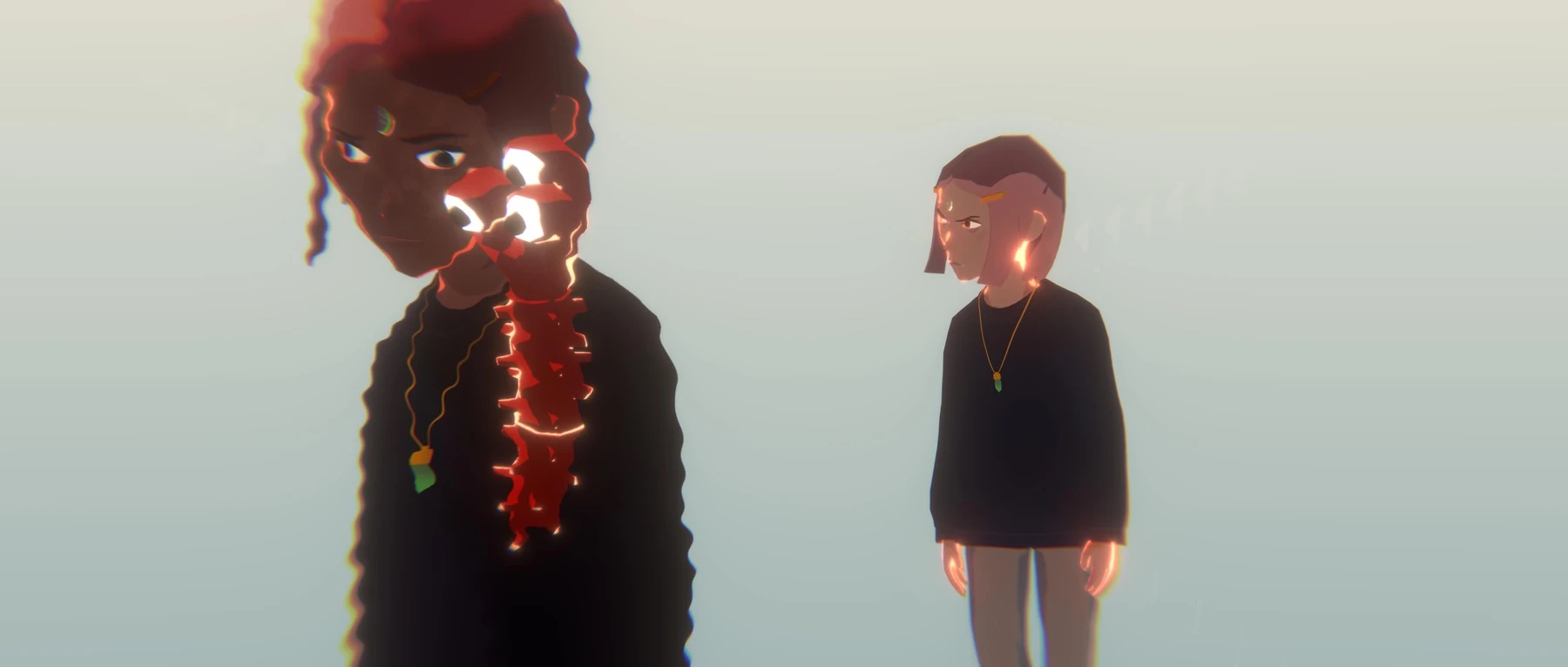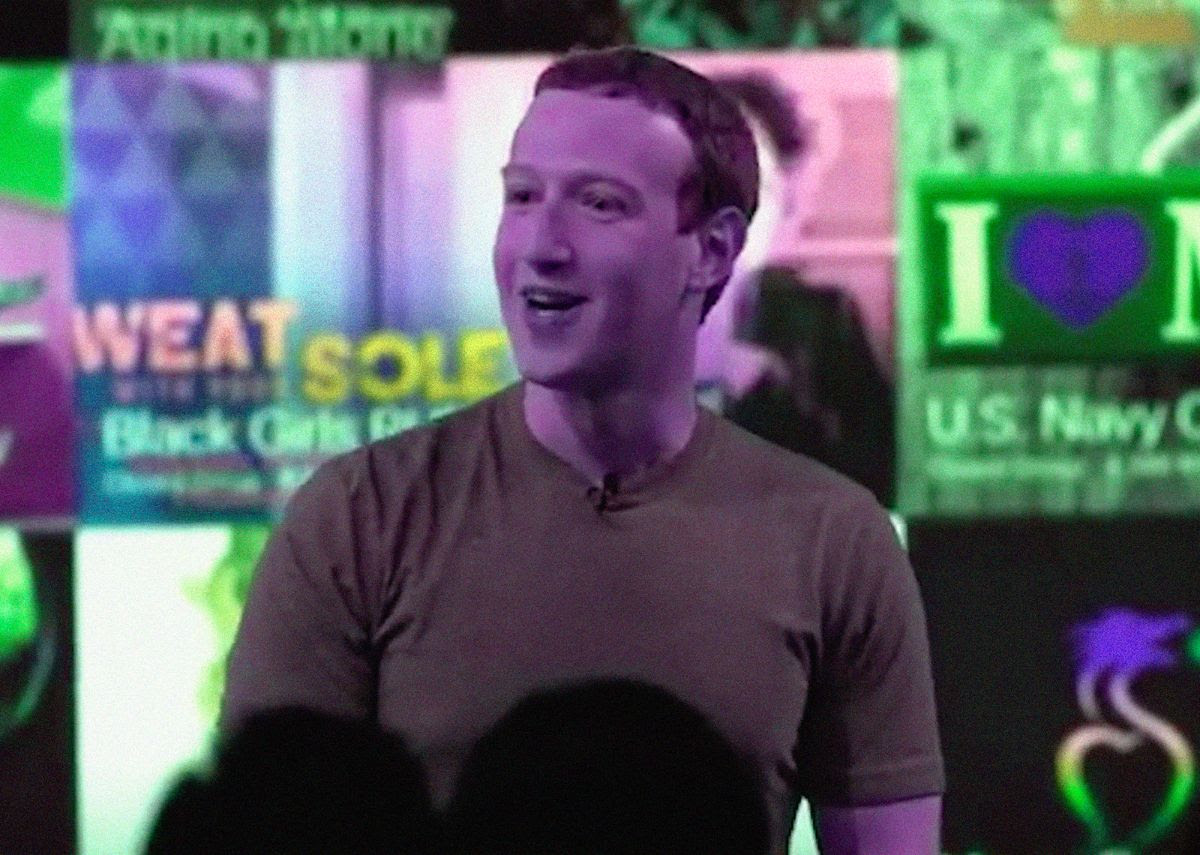In this amazing lecture writer Kurt Vonnegut diagrams the shape of all stories: from Kafka’s “Metamorphosis” to “Cinderella”.
[via]
In this amazing lecture writer Kurt Vonnegut diagrams the shape of all stories: from Kafka’s “Metamorphosis” to “Cinderella”.
[via]

Piper Page uploaded a full version of The Seventh Seal (1957) by Ingmar Bergman onto Youtube with oddly satisfying videos on the left and Subway Surfers on the right. My head hurts but my heart is happy. Watch it here.
A film assembling music produced by mushrooms. Text from GPT3 and images from Stable Diffusion. By Eryk Salvaggio. Read more about it here.
A single-episode analog horror video, Cornerfolk concerns a man who believes strange entities to be using his home as a sort of nexus when passing through dimensions. Fascinating.
“Kate Bellingham reports that an exciting new interconnected world – a world where every word ever written, every picture ever painted and ever film ever shot will be at our fingertips – is tantalisingly close. The information superhighway will be a high-capacity digital communication network, which in time could revolutionise the way we shop, socialise and work”.

Artist Ian Cheng looks at the way that the work of psychiatrist Eric Berne changed the way that he thought about human personality when it came to creating the AI simulations that people his work. On Elephant:
“Obviously we take different paths, but Berne believed that everyone lives out a fairytale as a template script that they’ve cast themselves into with the help of their parents. Most people aren’t satisfied with the script that they’re unconsciously barreling down. It might be a mismatch: maybe your parents had old fashioned values; maybe the culture you grew up in radically shifted in your teens, which alters the relevance of your life script.”
I don’t know how it’s possible that I didn’t come across this masterpiece before.
Passage a l’acte, by Martin Arnold (1993) “makes a simple breakfast scene from To Kill a Mockingbird look like a surrealist nightmare“.
“A 13-part television series covering aspects of the Internet in 1996 to introduce to a general audience. Called “Life on the Internet”, the series was hosted by Scott Simon, sponsored by Sun Microsystems, and covers the state of online life at the time”.
Amazing sculpture, amazing performance, great video.
According to this research, in David Glowacki‘s VR experience, Isness-D “participants can partake in an experience called energetic coalescence: they gather in the same spot in the virtual-reality landscape to overlap their diffuse bodies, making it impossible to tell where each person begins and ends. The resulting sense of deep connectedness and ego attenuation mirrors feelings commonly brought about by a psychedelic experience.”
The study, involving 75 subjects, showed that Isness-D offers an experience near indistinguishable from 20 milligrams of psilocybin or 200 micrograms of LSD.
[via]
My new favourite fan theory is the one that says that Snowpiercer is a sequel to Willy Wonka.
A very interesting and entertaining video on his Majesty mr. Buster Keaton.

“Jacob Hurwitz-Goodman traces the significance of Facebook’s Newsfeed launch, from the initial rage it engendered to its precipitation of the algorithm-dominated status quo of current-day digital media. Prior to Newsfeed, early internet users had static profiles and had to consciously click and search for things on the site. Upon its launch, the blueprint for media inexorably changed: we were no longer explorers, searchers, discoverers—our very experience of time collapsed into an ever-shifting present; we became passive consumers of a digital feed algorithmically curated to our every trivial fancy. “
[streaming on DIS]
“The Subject Changes is a poetic live simulation of a capricious character, endlessly shape-shifting while negotiating his/her ambiguous world. The character sets out on an indefinite dérive – a frantic exploration – where fragile relationships with the world-cum-stage and its occupants are established or broken down. His/her state is ornately reflected in a constantly mutating attire, a fluctuating embodied masquerade — the virtual body as an encoded aesthetic artefact.”
Created by Vienna based Depart (Leonhard Lass and Gregor Ladenhauf).
Essai d’ouverture is a 1988 short French film by Luc Moullet. It’s about a man and his many bizarre approaches to opening a Coca-Cola bottle.
[via]

I really enjoyed watching this video published on People Make Games YouTube channel. It gives an amazing perspective on the topic of virtual worlds beyond hype and corporate bullshit.
Michael Moynihan: “Can you explain to people who might be confused as why a very smart, sensible man like yourself, would spend 500,000 dollars on a jpeg?”
Metakovan (aka the most famous cryptoart collector): “I can have it forever because it’s on the blockchain, I DON’T LOSE IT and IT DOES NOT GO BAD”.
YouTuber Lucas Rizzotto fitted his microwave with voice-controlled AI in order to resurrect his childhood imaginary friend “Magnetron”. But at some point things got scary…
“Organic Smiles Cereal Commercial” is an analog horror video made by Nathan Frost. With a great backstory:
“On August 23rd, 2015, a user posted on a message board and asked “what’s a scary story that freaked you out when you were younger?” a user responded by saying ” My grandfather used to always tell me a story about a commercial test screening that he and his friends went to when he was younger. He always told me that it was a Cereal advertisement from a company called Organic Smiles. I’ve looked up the brand and it literally does not exist. He said that the commercial had distorted-faced mannequin women and long blood faces. He didn’t watch the whole thing as he ran out of the theater crying but his friends did watch it all and were absolutely traumatized by it. Later that year he said all the people who attended that screening went missing. At the time I totally believed it but now I realized that he had to have been screwing with me, but he always had a serious look on his face when he told me about it.
The response at the time didn’t gain much traction until a year later on September 4th when the same user that posted the story said they found the supposed commercial on film tape that was mailed to him somehow. Later that day the user started posting screenshots of it showing its authenticity and proving it was real. Other users were getting excited and many were highly anticipating it.”
[via]

For the past several years, artist Joshua Citarella has targeted his research-based practice on the political behaviors of the young and very online. Jacob Hurwitz-Goodman has similarly used his documentary practice to investigate emergent political modes like Seasteading. Together in When Guys Turn 20, they explore how users across the political spectrum deploy memetic tactics on social media, as well as how the rhetoric and reality of Silicon Valley diverge.
Cycling through a variety of locales and roles (teacher, Twitch streamer, prisoner, Sith Lord), Citarella narrates online political methods and mechanisms of propaganda. From MMORPGs as a proof-case for socialism to the tricks of meme extremists to the problems of Big Tech, When Guys Turn 20 offers a behind-the-servers glimpse into various expressions of platform capitalism.
[via DIS]

Life on the CAPS is a film trilogy by artist Meriem Bennani. It is set on a fictional island where American troopers have exiled immigrants who attempted to enter America via teleportation. In the world of the CAPS, teleportation has replaced air travel, and displaced populations utilize this portal to cross oceans and borders. Layering live action footage and computer-generated animation, Bennani intuitively adapts editing techniques that evoke documentary film, science-fiction, phone footage, music videos, and reality TV.
[via]
A video essay by Max Tohline.
“Three years in the making, this feature-length pop-academic investigation of the SUPERCUT asks where supercuts came from, how they hold our attention, and why they became so popular when they did. Tracing back the genetic lines of experimental film, fan remix, documentary, news, and more, this video essay uncovers the roots of the supercut well before YouTube: back in the 1920s and beyond. These multiple interlocking genealogies reveal that the supercut isn’t just a new form of compilation editing; rather, it’s a new way of thinking expressed by a mode of editing. In fact, the supercut is only a small part of a much larger story about a culture that traded one paradigm of knowledge and power, that of the archive, for a new one: the database.”